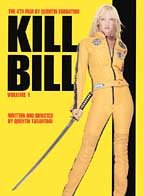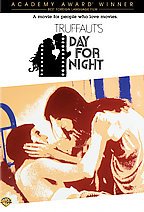 "Finally, brothers, whatever is true, whatever is noble, whatever is right, whatever is pure, whatever is lovely, whatever is admirable—if anything is excellent or praiseworthy—think about such things." Philippians 4:8 (New International Version)
"Finally, brothers, whatever is true, whatever is noble, whatever is right, whatever is pure, whatever is lovely, whatever is admirable—if anything is excellent or praiseworthy—think about such things." Philippians 4:8 (New International Version)Are you tired of serious or quality films that while, ostensibly, are not junk as far as their artistry is concerned, nevertheless, their themes of violence, lust, twisted sexuality (necrophilia, voyeurism, sado-masochism), and their obsession with just plain appalling people whom you'd never want to bring home to your house or would feel comfortable visiting theirs, makes you long for a new cinema, one of decency and gentleness? While such anti-cinema-verite films may be useful to give you a point-of-reference when talking to both Christian
 and non-Christian lovers of serious film as Francis Schaeffer recommended in Escape from Reason, it is becoming increasingly distasteful to continue being "in the know." While the same thing could be said for significant literature and the arts in general, the medium of film with its alternate universe and in-your-face palpability, invades not only your mind for two hours, but your life, as well, with a lingering residue that lasts days or weeks or years, down the road. Even though I've only seen Silence of the Lambs once, years ago, its deadly world of misery and vileness reappears briefly whenever the title flashes across any history-of-film newspaper article or in a chance sighting on the DVD shelves of a library or store.
and non-Christian lovers of serious film as Francis Schaeffer recommended in Escape from Reason, it is becoming increasingly distasteful to continue being "in the know." While the same thing could be said for significant literature and the arts in general, the medium of film with its alternate universe and in-your-face palpability, invades not only your mind for two hours, but your life, as well, with a lingering residue that lasts days or weeks or years, down the road. Even though I've only seen Silence of the Lambs once, years ago, its deadly world of misery and vileness reappears briefly whenever the title flashes across any history-of-film newspaper article or in a chance sighting on the DVD shelves of a library or store.While the films that were then-current with the intellectual set when Schaeffer wrote his Escape from Reason, such as Satyricon or Day for Night wer
Needless to say, some future film afficionado may one day look back upon Sin City and Kill Bill, Volume 1 and find them strangely nostalgic of a simpler time. It's painful to even imagine what those future serious films will be like, that will render these contemporary films agreeable and reminiscent of days gone by.
"By beholding we are to become changed; and as we meditate upon the perfections of the divine Model, we shall desire to become wholly transformed, and renewed in the image of His puri
 ty. It is by faith in the Son of God that transformation takes place in the character, and the child of wrath becomes the child of God..." –Elen G. White, 1st Selected Messages 335-338 (Signs of the Times December 26, 1892).
ty. It is by faith in the Son of God that transformation takes place in the character, and the child of wrath becomes the child of God..." –Elen G. White, 1st Selected Messages 335-338 (Signs of the Times December 26, 1892).
No comments:
Post a Comment